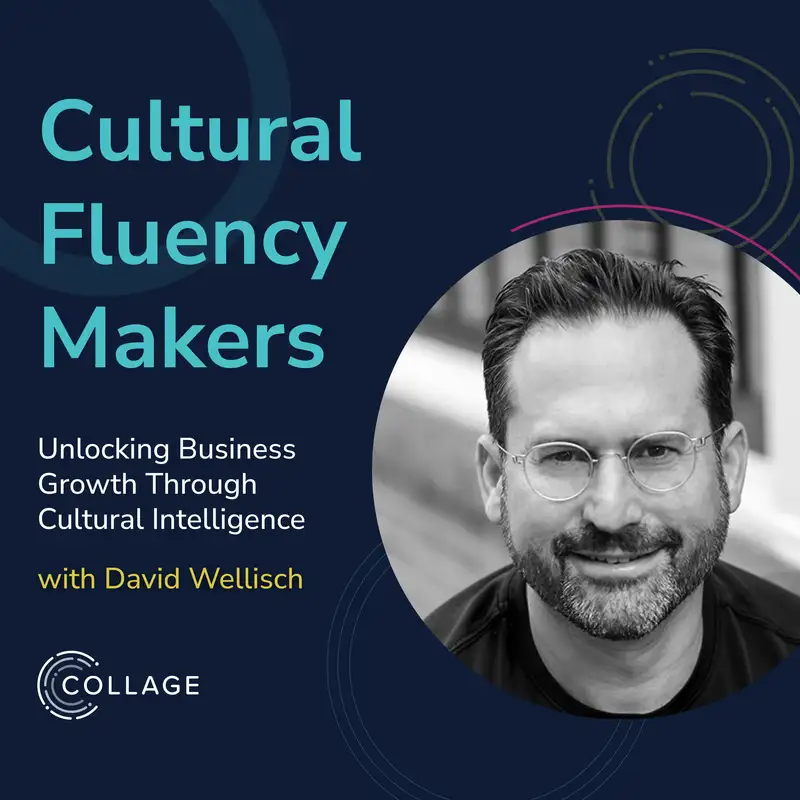Connecting With Multicultural Consumers - John Mutterperl - Cultural Fluency Makers - Episode # 003
In this episode, John Mutterperl, Director of Consumer Insights at Campari America, discusses the significance of inclusive and multicultural marketing strategies in the United States. He emphasizes the dual-prong approach as both a business and moral imperative, given America's diverse demographic landscape.
John outlines the growth potential and critical nature of connecting with multicultural consumers authentically and relevantly. He also addresses the structural and cultural challenges of implementing inclusive marketing effectively within organizations. The conversation covers strategies to resonate with diverse audiences, balancing broader campaigns with targeted messaging, and handling societal backlash carefully. Additionally, John shares personal insights on his motivations, career advice, and the importance of embracing change and diversity in both professional and personal contexts.
Takeaways:
- Embrace Inclusive Marketing as a Business and Moral Imperative: Recognize that inclusive marketing is essential not only for market growth but also for reflecting the company's values. Leaders should make it clear that inclusivity is fundamental to the brand's identity and strategy. This helps in attracting a significant and growing segment of the market that values diversity and inclusion.
- Organizational Alignment and Involvement: Ensure that the entire organization, from top executives to frontline employees, understands and participates in multicultural marketing efforts. Inclusivity should be integrated into every department including sales, marketing, finance, and production. This collective effort is necessary to resonate authentically with diverse audiences and to avoid inconsistencies in brand messaging.
- Recognize Cultural Nuances: Understand that multicultural audiences are not homogeneous. Tailoring your marketing strategies to address the specific cultural nuances and values of different demographic groups can make your efforts more effective. Research and respect differences within groups, such as differences between Hispanic Americans from various countries of origin.
- Strategic Approach (AIM: Assess, Identify, Meet): Use a structured approach to inclusive marketing. Start by assessing how well your brand aligns with different cultural groups using data and insights. Identify the most strategic opportunities based on your resources and capabilities. Finally, meet your audience where they are by engaging with them in culturally relevant and authentic ways.
- Patience and Long-term Commitment: Building excellence in multicultural marketing takes time and ongoing effort. Leaders should be prepared for a long-term commitment, continuously refining strategies and learning from experiences. Instant results are unlikely, but patience and perseverance can lead to substantial long-term gains.
- Balance Targeted and Broader Campaigns: While it's important to have targeted messages that resonate with specific demographic segments, avoid isolating broader audiences. Create campaigns that speak to targeted groups with nuances they appreciate, but ensure that these messages are also appealing or neutral to a general audience to avoid alienation.
- Cautious Approach to Political Stances: In a highly polarized environment, it's critical to avoid taking overt political stances that might offend or alienate parts of your audience. Focus on creating inclusive and welcoming messages that align with your brand's core values without delving into contentious political issues. This ensures a broader appeal while maintaining a respectful brand image.
Quote of the Show:
- "Multicultural marketing is not an add-on; it's essential."
Links:
- LinkedIn: https://www.linkedin.com/in/jmm41profile/
- Website: https://www.camparigroup.com/en
Ways to Tune In:
- Spotify: https://open.spotify.com/show/6zWYQ3jHAH2t7Fp1IGKnex
- Apple Podcasts: https://podcastsconnect.apple.com/my-podcasts/show/cultural-fluency-makers-unlocking-business-growth-through-cultural-intelligence/19aa6ec3-7bd8-47d2-92f3-dd77a6296383/episodes
- Amazon Music: https://music.amazon.com/podcasts/1940eb19-acfb-45c1-bd1e-a4620ca9256e
- Podchaser: https://www.podchaser.com/podcasts/cultural-fluency-makers-unlock-5790367
- Transistor: https://culturalfluencymakers.com/
- YouTube: https://youtu.be/hCWTmHh7rRk
Creators and Guests



